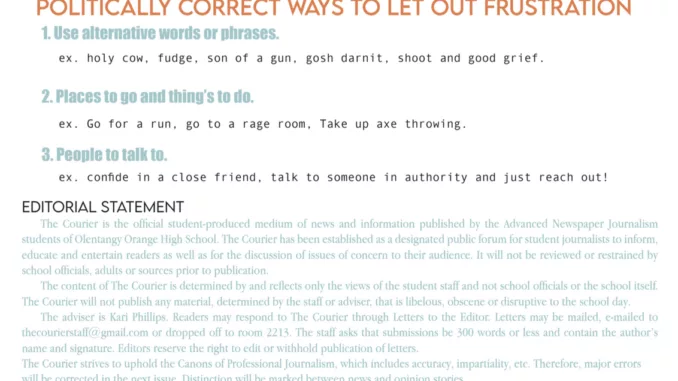
design: Morgan Kubetin
Inappropriate, improper, tasteless: these are words commonly used to describe swear words and the people who use them. Swearing is often looked down upon (particularly by the older generations), but it may not be as bad as people make it out to be.
Swearing can make it easier to withstand pain by helping to release frustration.
Behavioral psychologist Richard Stephens supported this in an experiment he conducted. In the first trial, he had 67 volunteers stick their hands in ice water. He then randomly chose who could use swear words and who couldn’t during it.
He compared how long they could keep their hands in the water and found that the people who were swearing could last for 50 percent longer on average than the people using a neutral word to express their pain, according to National Geographic.
Besides physical benefits, studies have also shown that swearing between friends can also be a strong signal of trust that the people share, according to National Geographic.
However, swearing too often can lead to the words losing their meanings. This phenomenon shows that the words only have power because people give them power.
When they’re constantly censored and replaced with phrases like “the f-word”, the words become much more powerful and hurtful when they’re used.
Without the censoring, more people would become desensitized and most swear words would be comparable to “heck” and “crap”. This hasn’t happened for the world as a whole, but for the younger generations, it has started.
Words that many middle-aged people find offensive don’t even raise the eyebrows of many teenagers today. The words are used so frequently that they have almost no impact.
Psychologists Kristin and Timothy Jay found that fk and the st are the most commonly used profanities by children under the age of 13, according to Sage Journals.
The power these words once had is waning away and, for many, that’s not a negative thing.
We, as an editorial board, understand that swearing can be harmful and inappropriate at school or in other formal situations, but we also believe that it’s not as terrible as people make it seem. In the right situation and with the right people, swearing can be a way to express feelings and connect with peers.


